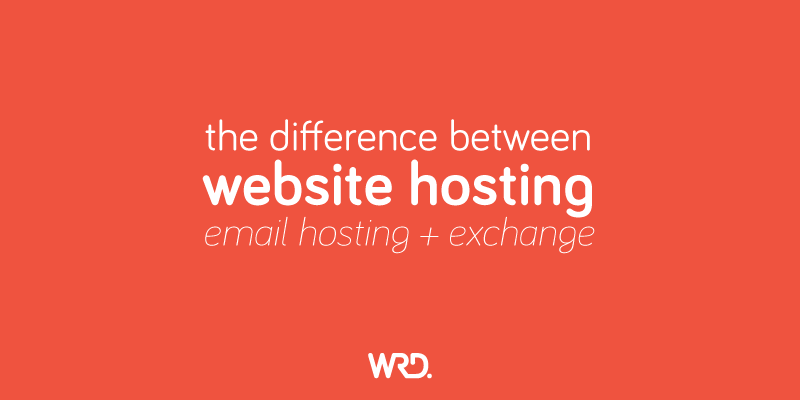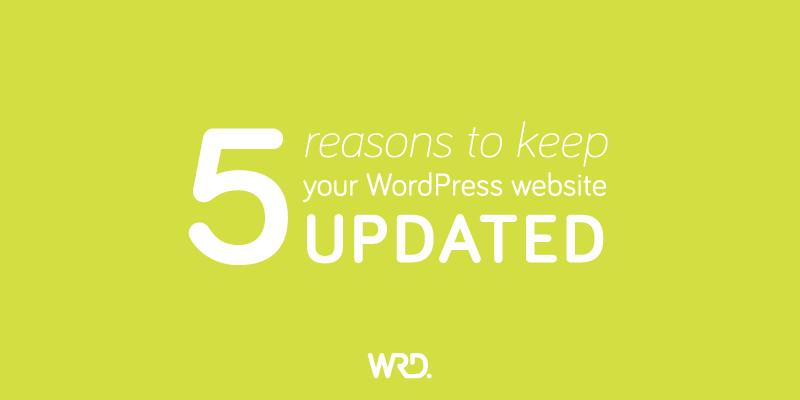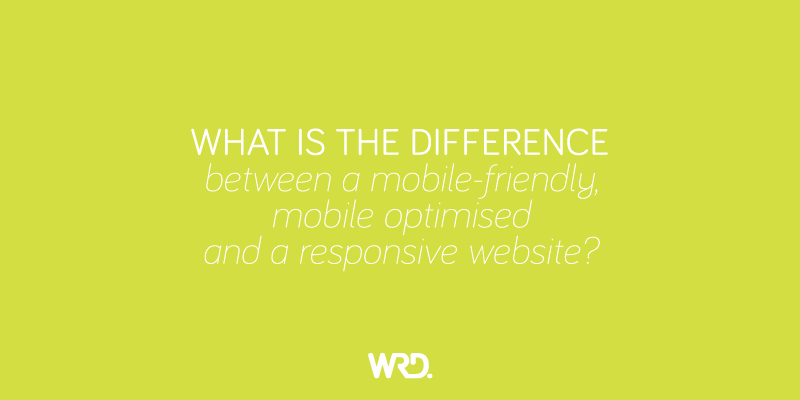As a branding studio that designs, develops and hosts website, we have fallen into a challenging workspace where the lines between what we provide and what an IT guru provides has become blurred.
To clear up some misconceptions, I thought I’d share with you the different roles of website hosting and email hosting and why the latter requires an IT professional to set up and trouble shoot. Firstly we need to understand the difference between website hosting, email hosting and email exchange.
Website hosting
In simple terms, web hosting is limited space allocated on a server where your website lives. This space can run out. Kind of like a USB. There is a limited amount of space on a USB, so when it becomes full, you cannot add anything more. The same goes for website hosting.
Please access your website by typing your domain name into your browser. The domain name directs the browser to the web server where all of your files for your website are being kept. If the allocated amount of disk space is exceeded, your website won’t work.
Email hosting
Email hosting is also server space, but this is where your emails are stored. If someone sends you an email it actually goes through your email server where it is stored. You can access this email by using your Webmail details. To ensure that you don’t run out of space on the server, you would need to:
- increase your disc space,
- delete emails,
- download your emails to a third party software using POP settings (Outlook, Mail etc) and then remove the original file from the server.
If emails are not managed or maintained, they will stop working once the disc space has been filled. You will then need to follow the above instructions or if you’re not comfortable with technology, contact and IT professional to fix the problem.
Email exchange
The email exchange is a far more efficient way to manage the complexity of email communication. Similar to email hosting, email exchange allows you to not just create email accounts, but also gives you the ability to access your email, contacts, calendar and notes across all of your devices. Set up using IMAP (not POP) emails that you send or receive from your phone will sync with your desktop, laptop or tablet, giving you the control to manage your business on the go. Email exchange is no longer just an email service, it is the ultimate business tool for communication, planning and organisation.
A little bit of history
Traditionally, and this is how we came to have clients who have their email through our server, smaller businesses had their web and email hosting in one place. Emails were a simple form of communication back then as we’d simply download the emails to our desktop and it would delete from the server. As it wasn’t being stored on the server, clients wouldn’t run out of disc space.
Historically it was only the larger organisations that split web hosting and email onto two different servers. Splitting the services like this meant that they had to have IT staff to manage the emails, but over the past few years, many businesses have been getting the benefits of dedicated email hosting by utilising cloud services like Google Apps. This may require an IT professional in the setup, but once set up, it’s usually good to go.
Technology has changed so much since we started building websites, and emails have certainly changed in the way that we use and access them. The reality is that website hosting (which we provide) is very limited in the email service it can provide for people who would like to access their emails on the go and have them sync with all of their devices. Our service for email is restricted to POP accounts, limited disc space and Webmail access. Once a third party software system comes into play, this is the space for an IT professional.
Why use a dedicated email host/exchange?
- Dedicated email hosting offers more storage space and better options for accessing email via web browsers and mobile devices than all-in-one hosting
- Having lots of storage space means you never have to delete any emails so you can always see all of your messages and send emails from anywhere (from your computer in the office, your phone while you’re on the road and your iPad at home, for example). This also means if your hard drive crashes you won’t lose all your emails.
- Separating email means your web hosting server has more space, less load and can be optimised to serve your website fast and securely.
- You can access and manage your email, contacts, calendar and notes all from one server, making life more efficient and productive.
We can recommend Steve Fossey from PixelMagic and Louise Xerri from Email Solutions who can help get you up and running with a more efficient email service.
Written by branding specialist Debbie O’Connor
Consultant, Strategist, Keynote Speaker




